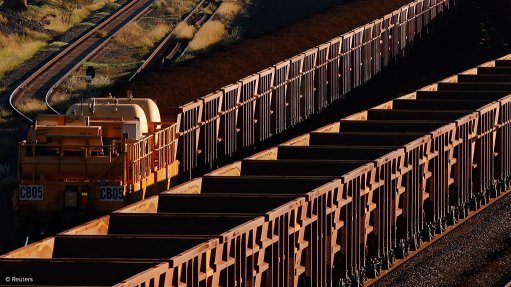Pre-applications for hydropower generation water-use licences invited
The Department of Water and Sanitation (DWS) has opened the pre-application phase for independent power producers (IPPs) to apply for authorisations to use water resources, water courses and infrastructure, such as rivers and dams, to generate hydropower.
The DWS revised its hydropower policy to enable the use of its infrastructure and water resources to generate hydropower as an alternative energy to supplement the current available electricity in South Africa.
“The policy empowers the DWS to remain within its mandate while supporting the much-needed investment in renewable-energy generation in the country. We have a duty as the department to ensure that the nation’s water resources are protected, used, developed, conserved, managed and controlled as stipulated in the National Water Act,” DWS director- general Dr Sean Phillips said during the optional stakeholder hybrid briefing on April 11.
The DWS initiated the Hydropower IPP programme to allow for the available infrastructure and water courses to be used to contribute to the power grid with renewable energy in response to South Africa’s Energy Action Plan.
The plan aims to enable the production of renewable energy as an alternative source of energy, removing barriers to new generation capacity and unlocking energy from many different sources, including IPPs, to add as much energy as possible to the grid.
Linked to this objective is an intervention aimed at enabling and accelerating private investment in generation capacity.
While the DWS developed policy principles to balance sustainable water resource protection, water and sanitation services provision and hydropower generation and will support the development of hydropower as part of both social and economic development, it will not be involved in any activities beyond licensing.
“We are not going to provide any financial support to the applicants, during application, construction, operations and maintenance. We are not going to be involved in any of the Eskom processes or own any electricity production,” he says, pointing out that the DWS will solely be responsible for the water-use licence applications (WULAs) and will ensure that the application processes are competitive, fair, transparent and underpinned by the equitable allocation of water resources in line with the National Water Act.
The DWS will not, in any way, be in a position to take ownership during the operation or postclosure of the hydropower plant that will be constructed as a result of this request for applications.
There are three necessary phases of WULA applications, the first of which is a preapplication phase, which will be open from April 17 until June 30.
The second phase will be the application compilation and submission, which will end on January 31, 2024, while the third and final phase is application processing, decision and communication by the DWS, explains DWS WULA chief director Advocate Sipho Skasana.
The department will have two phases of evaluating the applications received, the first comprising technical and functional evaluation and the second phase comprising preferential evaluation.
“The DWS will take a maximum period of 90 working days to process the applications. Once the decision has been made by DWS to grant a licence for hydropower generation, the licence will last for a maximum of 40 years.”
All applicants are required to comply with the conditions of a licence to avoid the suspension and withdrawal of the licence according to Section 54 of the National Water Act. This includes starting construction within a stipulated timeframe following the issuance of a licence.
The types of hydropower technologies that can be applied for include impoundment; river diversion or run-of-river; pumped storage and floating or kinetic turbines (small-scale generating capacity), as well as floating solar panels.
Comments
Press Office
Announcements
What's On
Subscribe to improve your user experience...
Option 1 (equivalent of R125 a month):
Receive a weekly copy of Creamer Media's Engineering News & Mining Weekly magazine
(print copy for those in South Africa and e-magazine for those outside of South Africa)
Receive daily email newsletters
Access to full search results
Access archive of magazine back copies
Access to Projects in Progress
Access to ONE Research Report of your choice in PDF format
Option 2 (equivalent of R375 a month):
All benefits from Option 1
PLUS
Access to Creamer Media's Research Channel Africa for ALL Research Reports, in PDF format, on various industrial and mining sectors
including Electricity; Water; Energy Transition; Hydrogen; Roads, Rail and Ports; Coal; Gold; Platinum; Battery Metals; etc.
Already a subscriber?
Forgotten your password?
Receive weekly copy of Creamer Media's Engineering News & Mining Weekly magazine (print copy for those in South Africa and e-magazine for those outside of South Africa)
➕
Recieve daily email newsletters
➕
Access to full search results
➕
Access archive of magazine back copies
➕
Access to Projects in Progress
➕
Access to ONE Research Report of your choice in PDF format
RESEARCH CHANNEL AFRICA
R4500 (equivalent of R375 a month)
SUBSCRIBEAll benefits from Option 1
➕
Access to Creamer Media's Research Channel Africa for ALL Research Reports on various industrial and mining sectors, in PDF format, including on:
Electricity
➕
Water
➕
Energy Transition
➕
Hydrogen
➕
Roads, Rail and Ports
➕
Coal
➕
Gold
➕
Platinum
➕
Battery Metals
➕
etc.
Receive all benefits from Option 1 or Option 2 delivered to numerous people at your company
➕
Multiple User names and Passwords for simultaneous log-ins
➕
Intranet integration access to all in your organisation


















